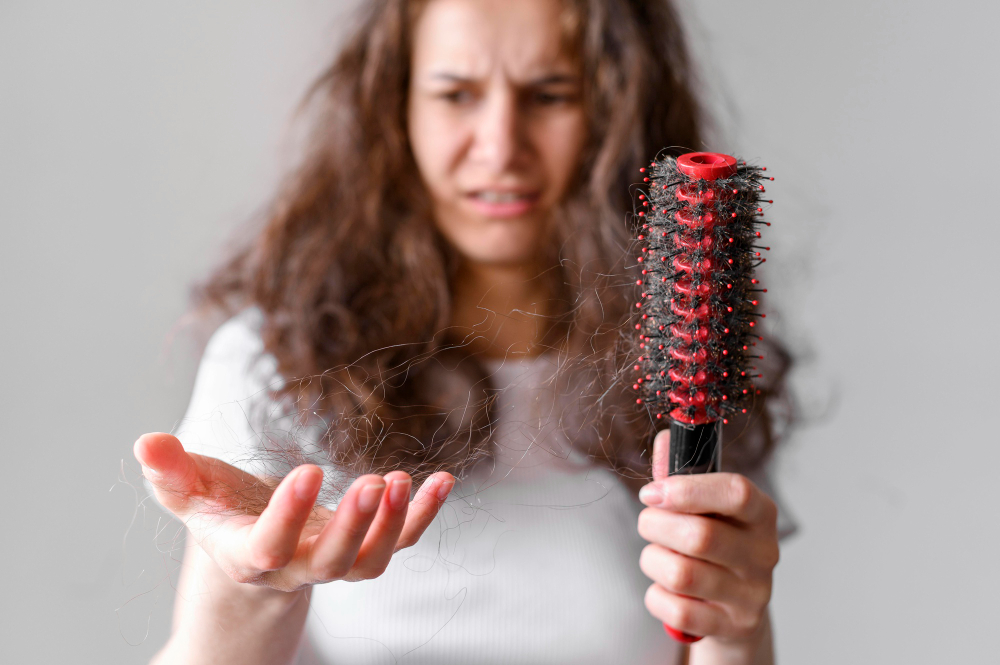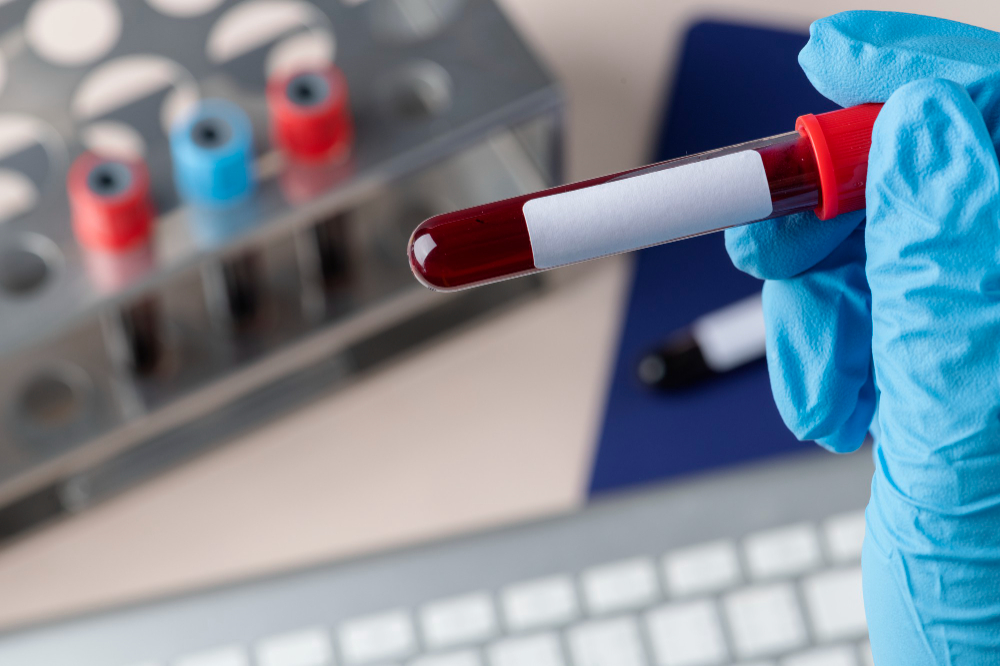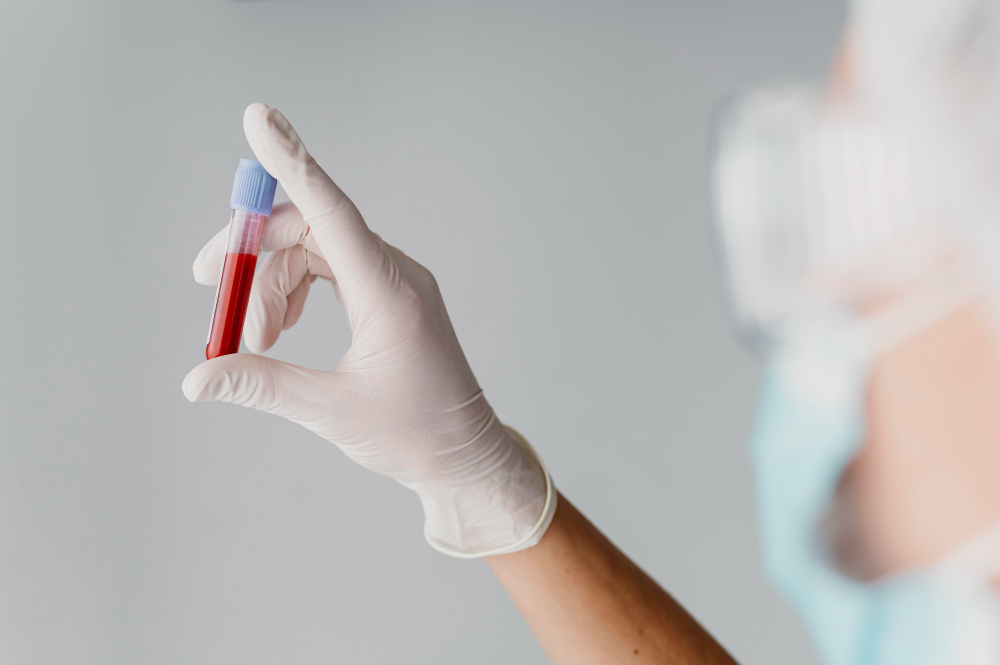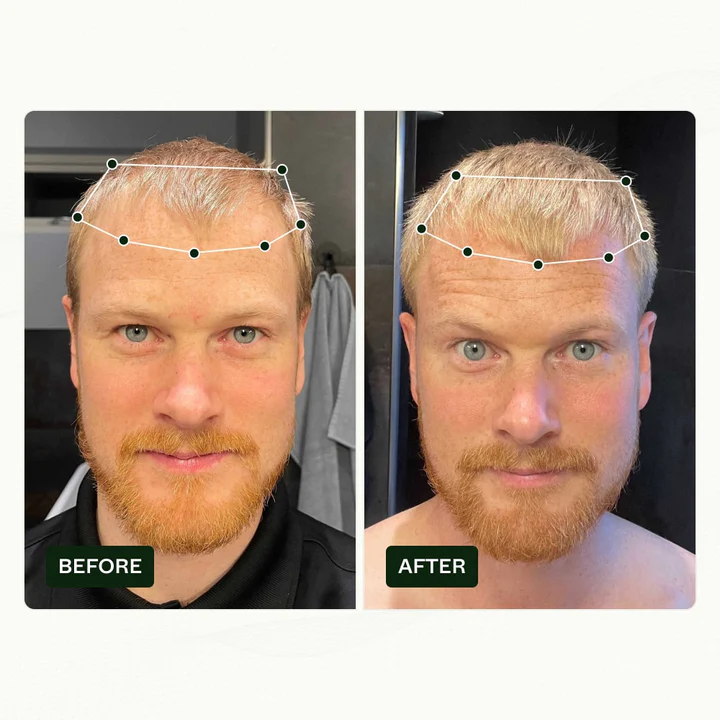Blood tests for hair loss in females serve as crucial diagnostic tools for identifying underlying conditions that contribute to thinning hair or permanent hair loss.
These blood tests can measure levels of substances like thyroid hormones, vitamins, and minerals in the blood, helping to identify deficiencies or imbalances affecting hair growth.
Common parameters in a blood test for female hair loss include thyroid hormones, iron levels, vitamin D, and ferritin, crucial for healthy hair follicles.
Understanding these levels assists healthcare providers in diagnosing issues such as thyroid disorders, nutritional deficiencies, or hormonal imbalances that lead to female pattern hair loss.
Identifying the root cause is crucial for determining the most effective treatment plan.
What causes hair loss in females?

Female hair loss can arise from a multitude of causes, from hormonal imbalances to lifestyle factors, affecting hair follicles and leading to hair thinning.
Unlike men, where hereditary patterns dominate, women's hair loss is often a sign of underlying health issues.
Hormonal imbalances
Hormonal imbalances can significantly impact hair growth and health, contributing to conditions like androgenetic alopecia and female pattern baldness.
Changes in estrogen and progesterone levels, common during menopause or pregnancy, can lead to hair thinning.
Additionally, conditions like Polycystic Ovary Syndrome (PCOS), which alters testosterone levels, can also cause hair loss.
Medical conditions
Specific medical conditions, including alopecia areata and thyroid disorders, are directly linked to hair loss in women, causing significant hair fall.
Thyroid disorders, such as hypothyroidism and hyperthyroidism, can lead to thinning hair.
Autoimmune diseases like alopecia areata result in patchy hair loss. Iron-deficiency anemia is another common cause, as iron is crucial for hair growth.
Medications
Various medications, including those for high blood pressure and depression, can lead to hair thinning or even permanent hair loss as a side effect.
Chemotherapy drugs are well-known for this, but other medications, including blood thinners, high blood pressure drugs, and antidepressants, can also contribute to hair thinning or loss.
Stress
Physical and emotional stress can trigger a type of hair loss called telogen effluvium.
This condition causes hair follicles to enter a resting phase prematurely, leading to increased hair shedding and thinning over time.
Lifestyle factors
Lifestyle choices, such as nutrition, exercise habits, and smoking, can also influence hair health.
A diet lacking in essential vitamins and minerals can lead to hair loss, while smoking has been linked to increased hair loss by reducing blood flow to the scalp.
Why are blood tests needed to treat women’s hair loss?

Blood tests, including a complete blood count, are essential in treating female hair loss by helping to identify the underlying cause, whether it's nutritional deficiencies or autoimmune disorders.
Unlike male pattern baldness, women's hair loss, such as diffuse thinning, can indicate a variety of health issues.
- Hormonal imbalances: Blood tests can reveal imbalances in hormones like estrogen, testosterone, and thyroid hormones, which are often behind hair loss in women.
- Nutritional deficiencies: Essential nutrients, such as iron, vitamin D, and zinc, play a significant role in hair health. Blood tests can detect deficiencies that may be contributing to hair loss.
- Autoimmune disorders: Conditions like alopecia areata can be indicated by specific markers in blood tests, helping to tailor the treatment accordingly.
- Infection and inflammation: Certain tests can identify signs of infection or inflammation that might be affecting scalp health and hair growth.
- Stress levels: While more difficult to quantify, certain blood tests can indicate levels of stress through cortisol levels, which may be linked to hair loss.
Blood tests for hair loss in females

Blood tests for hair loss in females provide critical insights into various underlying causes, ranging from hormonal imbalances to nutritional deficiencies. Here's an overview of the categories of tests and their significance:
Thyroid levels
Testing for thyroid hormone levels, including TSH, FT3, and FT4, helps identify hypothyroidism or hyperthyroidism, both of which can cause hair loss. An imbalance in these hormones indicates an overactive or underactive thyroid, affecting hair health.
Sex hormones
These blood tests measure levels of testosterone, oestradiol, androstenedione, prolactin, FSH, and luteinizing hormone, key indicators of hormonal balance affecting hair loss in women. Imbalances in sex hormones can lead to hair loss by affecting the hair growth cycle, with conditions like PCOS being a common cause linked to hair loss in women.
Iron and ferritin levels
Iron deficiency and low levels of serum ferritin are linked to hair loss. Testing for these can help determine if anaemia or low iron stores are contributing to hair thinning or loss, providing a pathway for treatment.
Complete blood count (CBC)
A complete blood count (CBC) evaluates the components of blood, including red and white blood cells and platelets, which can signal inflammation around the hair follicles.
Vitamin D levels
Vitamin D deficiency is associated with several hair loss conditions, including alopecia areata and female pattern hair loss. Testing vitamin D levels can help identify deficiencies that may be contributing to hair loss.
Vitamin B levels
Deficiencies in B vitamins, such as folate (B9), biotin (B7), and vitamin B12, can lead to hair loss. Blood tests for these vitamins can diagnose deficiencies that may be impacting hair health.
Blood sugar levels
High blood sugar levels can indicate diabetes, which is linked to hair loss. Testing blood sugar can help determine if diabetes or insulin resistance is a factor in hair thinning.
ESR and C-reactive Protein
These tests measure inflammation in the body, which can be related to scarring alopecia or other inflammatory conditions affecting hair growth. High levels suggest systemic inflammation that may need to be addressed to halt hair loss.
Best hair loss treatments for females
Treating hair loss in females involves diverse strategies, including topical treatments and medical procedures, aimed at promoting hair growth and revitalizing hair follicles. Here’s a look at some of the most effective treatments available:
Bio-Pilixin Serum
Bio-Pilixin Serum, an innovative solution for female pattern baldness, is designed to combat hair thinning and support robust hair growth by nurturing hair follicles.
It leverages plant growth factors from stem cell technology and has shown results in as little as 45 days.
The formula includes Capilia Longa for reduced hair loss and improved hair density, Niacinamide for strength through keratin production, and Vanillyl Butyl Ether to stimulate scalp blood flow.
Minoxidil
Minoxidil is an over-the-counter topical treatment known to effectively treat hair loss by stimulating hair follicles to grow. It’s particularly beneficial for those experiencing pattern baldness and has been widely used with significant success rates.
Finasteride
Finasteride is a prescription medication that decreases the production of dihydrotestosterone (DHT), a hormone linked to hair loss in women and men. It's typically recommended for female pattern hair loss under specific medical guidance.
PRP
PRP therapy involves injecting your own platelet-rich plasma into your scalp to stimulate hair growth. This treatment harnesses the healing power of your blood's platelets to rejuvenate hair follicles and encourage new growth.
Low level laser therapy
LLLT uses specific wavelengths of light to stimulate cellular activity in the hair follicles, aiming to increase hair density and strength. It's a non-invasive option that can be used at home or in clinics.
Hair transplant
A hair transplant is a surgical procedure that moves hair from a thickly haired area of the scalp to areas with thinning or balding. It’s a more permanent solution for hair loss, suitable for those who have areas of dense hair growth to serve as donor sites.
Conclusion
Hair loss in females is a complex condition influenced by a myriad of factors including hormonal imbalances, nutritional deficiencies, medical conditions, and lifestyle choices.
Blood tests play a pivotal role in unraveling the underlying causes of hair loss, guiding the path towards effective treatment.
Among the various treatments available, the Bio-Pilixin Serum from Scandinavian Biolabs emerges as a standout solution.
With its innovative blend of plant growth factors developed through stem cell technology, it promises to nurture hair follicles, stimulate blood flow, and encourage hair growth.
Coupled with other treatments like Minoxidil, Finasteride, PRP therapy, low-level laser therapy, and hair transplants, individuals facing hair loss have a beacon of hope.
By addressing the root causes and exploring these treatment options, women can embark on a journey towards healthier, fuller hair.
FAQs
Do blood tests indicate hair loss in women?
Yes, blood tests for hair loss in females are a highly effective method to ascertain the root cause of hair loss. These tests can measure various factors such as hormone levels, nutritional deficiencies, and more, providing a comprehensive overview of what might be causing the hair loss.
What can a trichological blood test reveal about hair loss?
A trichological blood test can offer insights into several underlying causes of hair loss by measuring levels of hormones, vitamins, minerals, and other markers related to hair health. Unlike visual assessments like the Ludwig Scale, which only quantify the extent of hair loss, these blood tests help identify the specific reasons behind hair loss in women.
How is female pattern hair loss diagnosed?
Female pattern hair loss is usually diagnosed based on medical history and clinical examination. Laboratory tests, including blood tests, might not be necessary for diagnosis. However, when the cause of hair loss is unclear, blood tests can be instrumental in identifying underlying health issues contributing to hair loss.
Read more:
- Best 15 Shampoos for Men's Hair Of 2024: Understanding Your Unique Hair Needs
- 50 Hair Dye Statistics Of 2024: The Surprising Trends and Facts You Need to Know
- Top 17 DHT Blocking Foods That Have Scientific Studies



